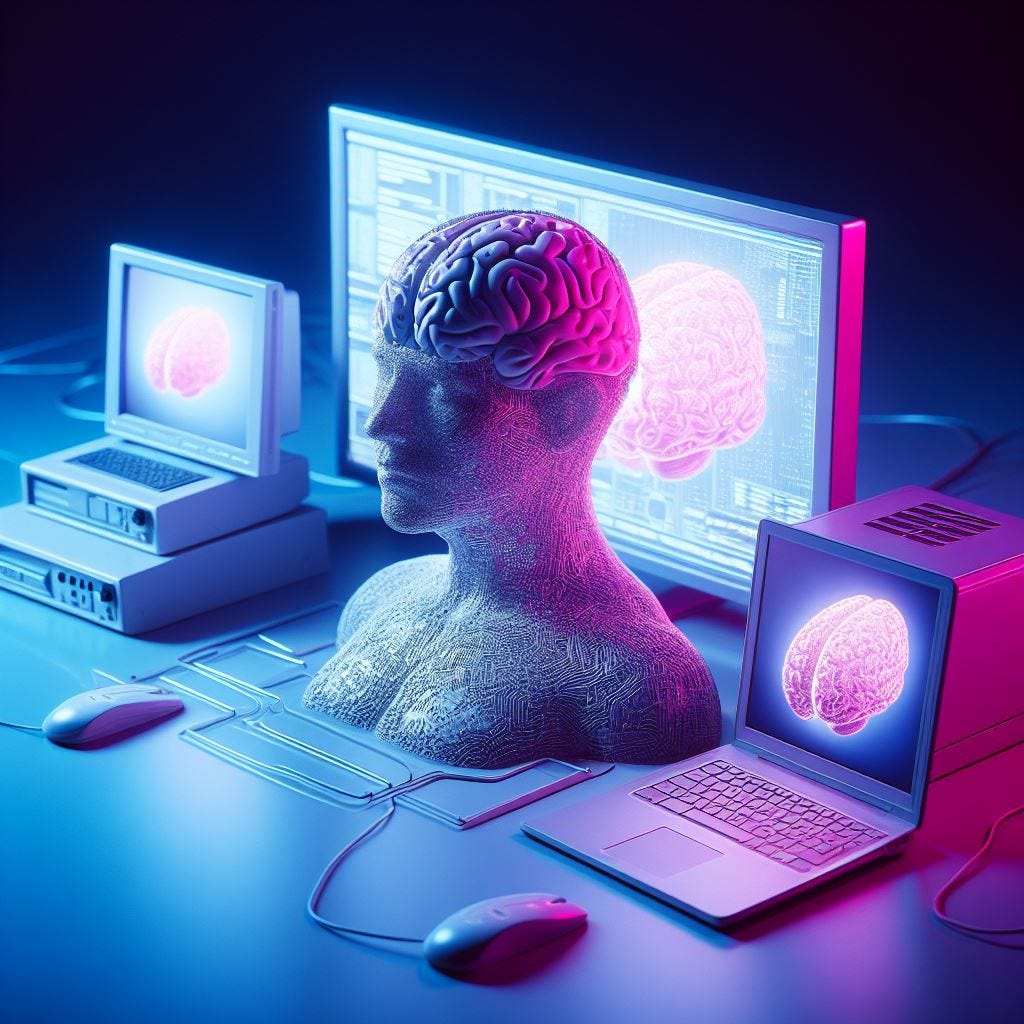Should Computers with Lab-Grown Brains Have Moral Rights?
Navigating the Ethical Frontier of Bio-Computing: A Moral Odyssey in Silicon and Cells
In this week’s edition, we dive headfirst into the realms of science fiction-turned-reality as we explore the fascinating world of bio-computing. Imagine a computer not just with silicon chips, but with a brain made up of living cells. It's no longer the stuff of dreams; it's here, and it's called DishBrain. This revolutionary technology, powered by 800,000 live brain cells, has raised profound ethical questions that demand our attention.
Unlocking the Potential
DishBrain is a testament to the incredible potential of combining biological neural systems with silicon substrates. It can learn to play games like Pong, but its implications go beyond entertainment. Researchers are now laying down guidelines to explore and responsibly harness this technology.
Dr. Brett Kagan, the chief scientific officer of Cortical Lab, emphasizes the need for sustainable progress. He reminds us that while this technology offers immense promise, we must consider the bigger picture.
Philosophical Ponderings
The ethical dimensions of bio-computing pose deep philosophical questions. What defines human consciousness or life? Julian Savulescu, the Uehiro Chair in Practical Ethics at the University of Oxford, highlights the challenge: "As it stands, there are still many ways of describing consciousness or intelligence, each raising different implications for how we think about biologically based intelligent systems."
Dr. Tamra Lysaght, the director of research at the Centre for Biomedical Ethics, draws inspiration from early philosopher Jeremy Bentham's views on animal rights, suggesting that the capacity to suffer is more relevant than reasoning or speech when considering moral status.
Balancing Innovation and Responsibility
Dr. Lysaght points out that even if these biologically based computers exhibit human-like intelligence, it doesn't necessarily follow that they have moral status. However, the collaboration between bioethicists, medical scientists, and technologists is providing a starting framework to ensure that the technology can be researched and applied responsibly.
Medicine and Beyond
This technology isn't limited to creating smart machines; it holds the potential to revolutionize medicine. DishBrain, for example, could accelerate our understanding of diseases like epilepsy and dementia. Dr. Christopher Gyngell, a research fellow in biomedical ethics, highlights the opportunity to make drug screening more representative of real-world patients by using diverse cell lines.
Environmental Benefits
Beyond medicine, bio-computing offers profound environmental benefits. Traditional silicon-based computing consumes vast amounts of energy, contributing significantly to carbon emissions. In contrast, the human brain operates on just 20 watts of energy. Dr. Kagan points out that exploring bio-computing alternatives could have compelling environmental advantages.
As we move forward in this exciting era of bio-computing, we must strike a balance between innovation and ethics, ensuring that the technology serves humanity responsibly. The path ahead is uncertain, but it's one filled with potential, not just for computing but for medicine and our planet.
Thank you for joining us on this journey of exploration and ethical contemplation. Stay tuned for more fascinating STEM topics in the next edition of Stemble!
Until then, keep embracing the wonders of science and technology with a mindful heart.


